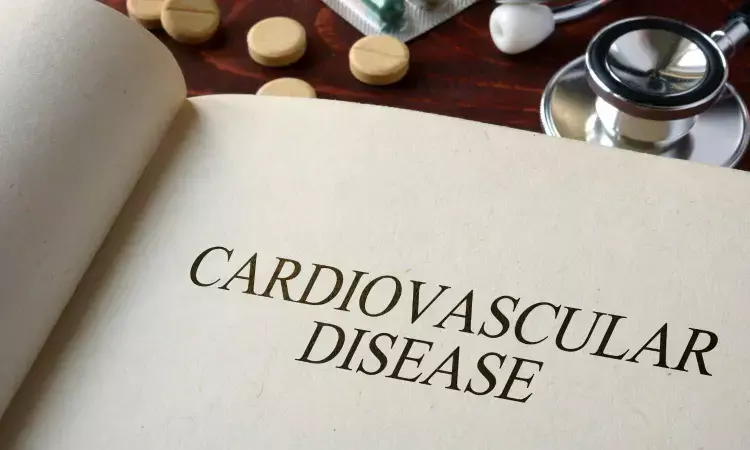- Home
- Medical news & Guidelines
- Anesthesiology
- Cardiology and CTVS
- Critical Care
- Dentistry
- Dermatology
- Diabetes and Endocrinology
- ENT
- Gastroenterology
- Medicine
- Nephrology
- Neurology
- Obstretics-Gynaecology
- Oncology
- Ophthalmology
- Orthopaedics
- Pediatrics-Neonatology
- Psychiatry
- Pulmonology
- Radiology
- Surgery
- Urology
- Laboratory Medicine
- Diet
- Nursing
- Paramedical
- Physiotherapy
- Health news
- Fact Check
- Bone Health Fact Check
- Brain Health Fact Check
- Cancer Related Fact Check
- Child Care Fact Check
- Dental and oral health fact check
- Diabetes and metabolic health fact check
- Diet and Nutrition Fact Check
- Eye and ENT Care Fact Check
- Fitness fact check
- Gut health fact check
- Heart health fact check
- Kidney health fact check
- Medical education fact check
- Men's health fact check
- Respiratory fact check
- Skin and hair care fact check
- Vaccine and Immunization fact check
- Women's health fact check
- AYUSH
- State News
- Andaman and Nicobar Islands
- Andhra Pradesh
- Arunachal Pradesh
- Assam
- Bihar
- Chandigarh
- Chattisgarh
- Dadra and Nagar Haveli
- Daman and Diu
- Delhi
- Goa
- Gujarat
- Haryana
- Himachal Pradesh
- Jammu & Kashmir
- Jharkhand
- Karnataka
- Kerala
- Ladakh
- Lakshadweep
- Madhya Pradesh
- Maharashtra
- Manipur
- Meghalaya
- Mizoram
- Nagaland
- Odisha
- Puducherry
- Punjab
- Rajasthan
- Sikkim
- Tamil Nadu
- Telangana
- Tripura
- Uttar Pradesh
- Uttrakhand
- West Bengal
- Medical Education
- Industry
Olive, grape, garlic, rosemary and saffron have preventive properties against CVD, reveals research

Cardiovascular problems are the leading cause of disease and mortality worldwide. Plant extracts, rich in bioactive compounds, have contributed significantly to the development of drugs, as they offer therapeutic potential for several of these diseases. However, their use is limited by possible side effects, drug-drug interactions and the lack of scientific evidence from quality preclinical and clinical studies.
During the 2023/24 academic year, biologist Mateu Anguera Tejedor made an important contribution in this field with his final year Biology degree project at the UAB, tutored by the then postdoctoral researcher at the Institut de Neurociències of the UAB (INc-UAB) and current lecturer at the Faculty of Pharmacy and Food Sciences of the University of Barcelona, René Delgado.
The study, recently published as a scientific article in the journal Food Bioscience, provides an overview of the mechanisms of action and the preclinical and clinical evidence, as well as the adverse effects of essential bioactive compounds derived from a group of selected Mediterranean plants which form part of the Mediterranean diet.
Among the species analysed, six representative plants and their major active components are reported: garlic (Allium sativum, with diallyl trisulfide, allicin and S-allyl [cysteine]), hawthorn shrub (Crataegus monogyna, with quercetin, apigenin and chlorogenic acid), saffron (Crocus sativus, with crocin and safranal), olive (Olea europaea, with oleic acid, oleuropein, hydroxytyrosol and oleacein), rosemary (Salvia rosmarinus, with rosmarinic acid and carnosic acid) and grapevine (Vitis vinifera, with resveratrol). The review focused on the most important pharmacological mechanisms, including their antioxidant, anti-inflammatory and vasodilatory actions, as well as their regulation of lipid metabolism, which may be relevant for conditions such as atherosclerosis and hypertension. The results show that these active components are promising in the potential treatment of atherosclerosis and could reduce the risk of heat attacks and strokes.
In addition to summarising the current scientific evidence, the study provides a reference guide for future research by identifying potential knowledge gaps and offering timely recommendations for designing preclinical and clinical studies in this area. Key areas for future exploration include the long-term safety of these compounds, the evaluation of their synergistic effects when consumed as part of a Mediterranean diet, and the need to establish standardised protocols in controlled clinical settings. By broadening the scientific basis of these traditional remedies, this review may help pave the way for their use as active pharmaceutical ingredients in the development of future phytomedicines.
Combined ingestion could alter the efficacy of individual extracts
The research team believes that the use of these natural extracts is promising, but their combined ingestion could influence therapeutic outcomes due to the “matrix effect”, which implies that dietary components can alter the efficacy of each extract, either enhancing or diminishing their individual benefits. Understanding this interaction is essential to optimise the therapeutic application of these plant extracts in a dietary context. It is important to recognise that there is often a lack of robust evidence of the impact of natural extracts in humans, and therefore researchers caution that “the label of ‘natural’ does not guarantee safety, and this emphasises the need to prioritise pharmacokinetic, toxicological and clinical studies to evaluate their efficacy, safety and efficiency in comparison with existing drugs”.
Reference:
Mateu Anguera-Tejedor, Gabino Garrido, Bárbara B. Garrido-Suárez, Alejandro Ardiles-Rivera, Àngel Bistué-Rovira, Francesc Jiménez-Altayó, René Delgado-Hernández, Exploring the therapeutic potential of bioactive compounds from selected plant extracts of Mediterranean diet constituents for cardiovascular diseases: A review of mechanisms of action, clinical evidence, and adverse effects, Food Bioscience,https://doi.org/10.1016/j.fbio.2024.105487
Dr Kamal Kant Kohli-MBBS, DTCD- a chest specialist with more than 30 years of practice and a flair for writing clinical articles, Dr Kamal Kant Kohli joined Medical Dialogues as a Chief Editor of Medical News. Besides writing articles, as an editor, he proofreads and verifies all the medical content published on Medical Dialogues including those coming from journals, studies,medical conferences,guidelines etc. Email: drkohli@medicaldialogues.in. Contact no. 011-43720751


